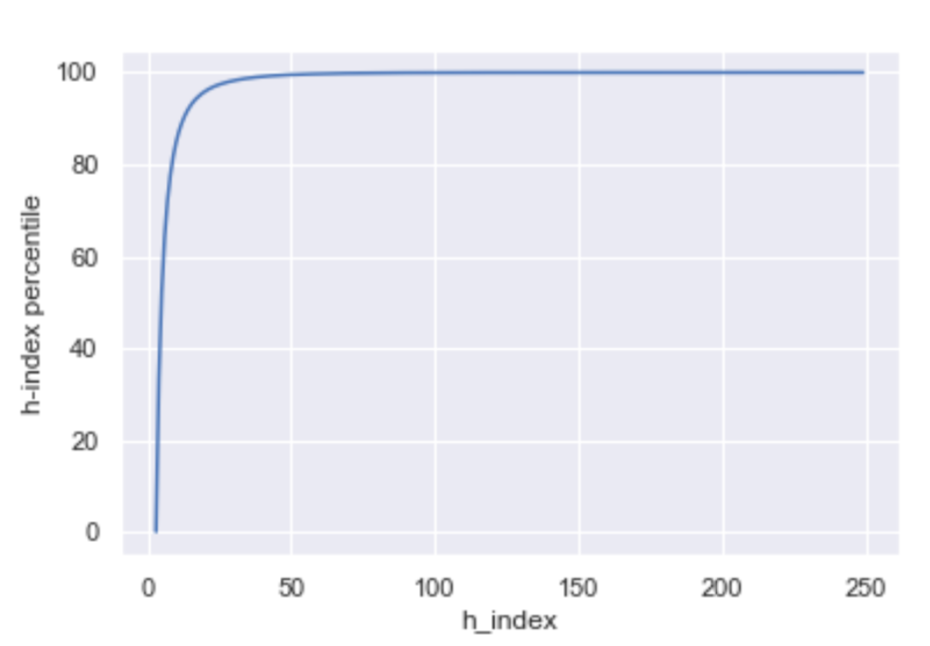Academic research is being published at a greater rate than ever before. In fact, global research output has been doubling every decade. With the tools necessary to conduct research becoming increasingly prevalent, data getting more transparent and accessible, and the growingly rapid dissemination of research itself, this trend will certainly continue. But with this comes the proliferation of low-quality/predatory journals and less-experienced authors publishing. Therefore, it is necessary to step back and understand how we define “experts” in research.
To embark on an exploratory study, I used data including the author’s h-index, total citations among all of an author’s papers, and the number of scientific papers under their name (regardless of the order of authorship) for >100M authors.
Who is an expert? Of all the authors, how many are “experts”?
Figure 1; Table 1
Figure 1 exhibits the CDF of h-indices > 3, a metric aimed at measuring an author’s overall impact. Table 1 contains the exact percentiles of a sample of h-indices. Note that the significant majority (99.6%) of authors have an h-index less than 3 and are not taken into account in this analysis. To have an h-index of _n, _one must publish at ≥_n _papers with ≥_n _citations each. The higher h-index indicates that the author is both more prolific and their work is likely of higher quality. As a result, we can probably classify them as an expert.
#scientometrics #research #academia #science #data-science #data science
